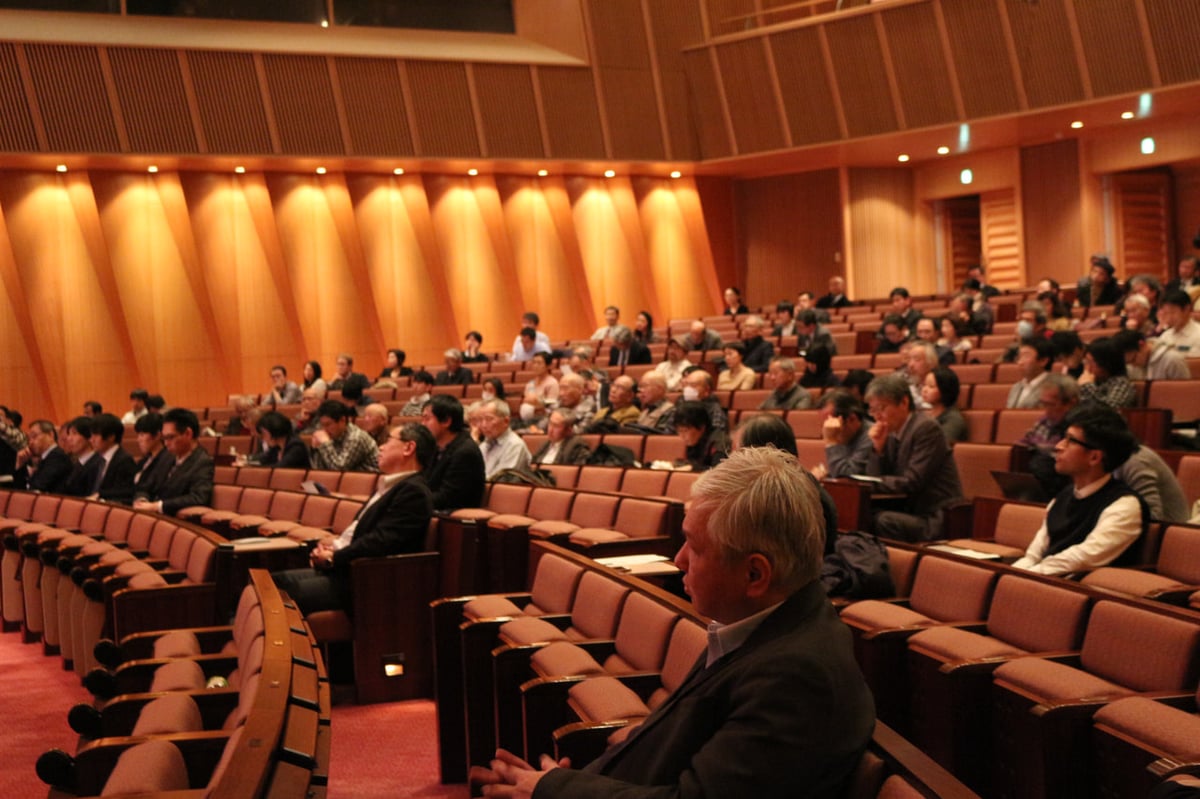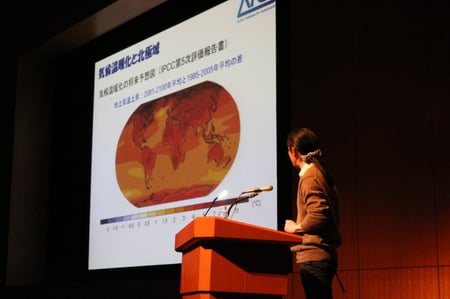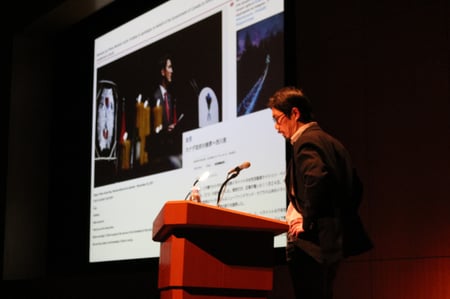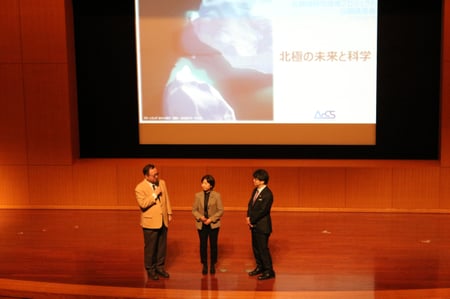Arctic Challenge for Sustainability project (ArCS) held its third public lecture on Monday, 15th January 2018 at Hitotsubashi Hall, Tokyo. The theme of the lecture was Arctic Future and Science.
The lecture started with an introductory talk by Dr. Masao Fukasawa (Project Director of ArCS, NIPR/JAMSTEC), followed by an opening address by Mr. Katsuya Kosakai who is the director for Polar Research Programs of the Ocean and Earth Division in the Research and Development Bureau, MEXT and a talk by Mr. Keiji Ide who is the Japan's Ambassador in charge of Arctic Affairs about his expectation for the ArCS project and the lecture.
Then, four researchers gave lectures. At first Dr. Atsushi Sunami (National Graduate Institute for Policy Studies/Ocean Policy Research Institute) gave a lecture titled Risk of the Arctic region - in search of balance between Risk and Chance. He introduced the latest topics on the development of economic activities in the Arctic region, such as LNG transportation project from Yamal, Russia, and its relationship with the United Nations Sustainable Development Goals (SDGs). His lecture showed importance of the Arctic research as one of the pillars of the scientific technology diplomacy.
Dr. Fumiko Kasuga (Future Earth/National Institute for Environmental Studies) talked about how a global research project of Future Earth recognizes several issues on a multi-disciplinary cooperation of science or an engagement between scientists and society, as well as how they contribute to resolve them. Her lecture gave audiences an opportunity of thinking about a relationship between science and society from a global perspective.
Following above two lectures, two researchers from the ArCS project talked about what the science is aiming for, and how it engages with the sustainable development of the Arctic. During the lecture of Understanding and prediction of the Arctic climate by a climatologist Dr. Hiroyasu Hasumi (the University of Tokyo/JAMSTEC), he presented the followings with the latest results obtained by the numerical models of sea ice, which is his field of expertise.
- Arctic climate is changing due to an outstanding impact of global warming
- Climate change in the Arctic affects to the global and mid-latitudes climate including Japan
- Direction of the study to be required for more precise prediction of the future climate change
On the other hand, a cultural anthropologist, Dr. Hiroki Takakura (Tohoku University), introduced how the Arctic climate change affects the social structure and livelihood of the indigenous people based on his research in Sakha Republic, Russia. Analysis based on natural science clarified that temperature rise and increased wetness were significant, which affects the occurrence of spring floods. Anthropological study has found that people in Sakha Republic have a capability to adapt floods from their traditional knowledge. His talk showing a progress of collaboration of natural sciences, humanities and social sciences attracted the audience.
There were 152 audiences including scientists, company workers and students.
Secretariat








